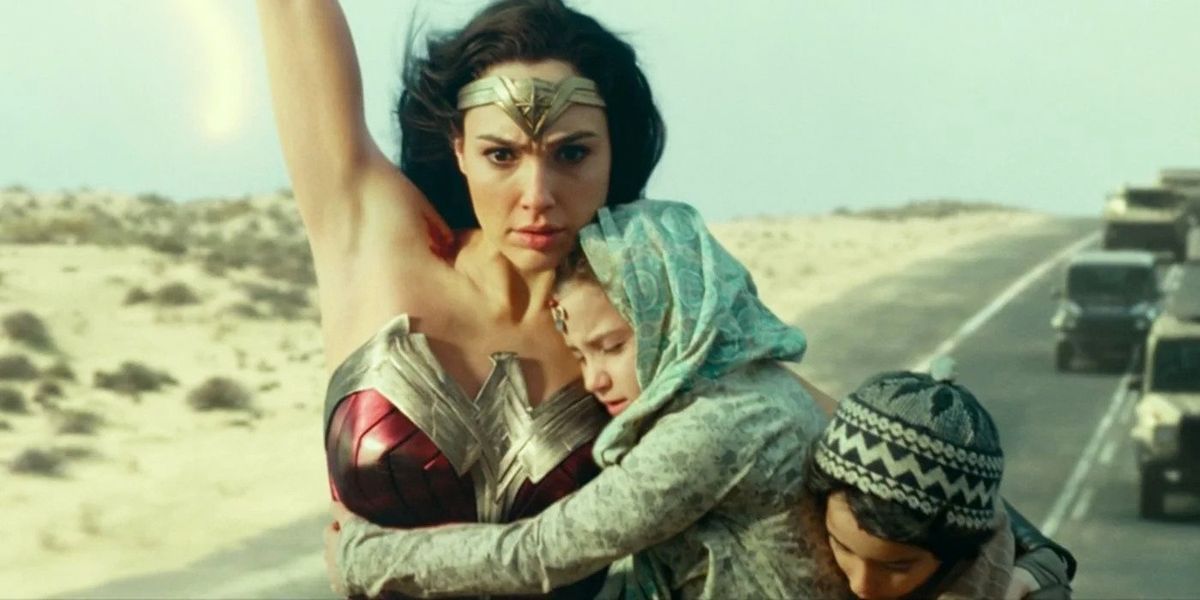‘Moon Knight’ Director Calls Out the Egypt Storyline in ‘Wonder Woman 1984’
Mohamed Diab called the sequence "a disgrace."

Director Mohamed Diab is making the rounds to promote Disney+’s new Marvel series Moon Knight. The series, which stars Oscar Isaac in the title role, follows mercenary Marc Spector who gains super powers and strength thanks to the Egyptian god of the moon, Khonshu. Like so many comic book characters from the past, Moon Knight leaned on racist stereotypes and orientalist tropes (see Iron Fist, Shang-Chi, the Mandarin, Egg Foo…the list goes on!). In hiring Diab to direct 4 of the 6 episodes, Marvel is bringing the perspective of an Egyptian filmmaker to an Egyptian-set story.
It’s a position that Diab doesn’t take lightly, given the racist depictions of Egypt and Egyptians in pop culture. In an interview with IGN, he said “It was very important for me to portray us as normal human beings, … Even the location itself, showing Cairo, which always we see the pyramids in the middle of the desert, even though if you just looked a little bit to the right, the pyramids are in the middle of the city, and it’s twenty million people, and we have skyscrapers, and it’s a normal place just like this.”
Dismantling these stereotypes was always at the core of Diab’s work on Moon Knight. “In my pitch, there was a big part about Egypt, and how inauthentically it has been portrayed throughout Hollywood’s history,” Diab tells SFX Magazine. “It’s always exotic – we call it orientalism. It dehumanizes us. We are always naked, we are always sexy, we are always bad, we are always over the top.”
Diab also called out modern movies that continue to rely on outdated and racist tropes about Egypt, most recently Wonder Woman 1984. The film featured an extended sequence in Egypt, where Pedro Pascal’s Max Lord goes to Cairo in order to seize the oil rights from the wealthy Emir Said Bin Abydos, granting his wish is to regain his ancestral lands and cast out the heathens. Lord then creates a massive wall, which cuts off the poorest citizens from supplies and clean water. This leads to an action sequence where Israeli star Gal Gadot saves Egyptian children from an oncoming truck. The scene is historically inaccurate and wildly offensive.
“I remember seeing Wonder Woman 1984 and there was a big sequence in Egypt and it was a disgrace for us,” said Diab. “You had a sheik — that doesn’t make any sense to us. Egypt looked like a country from the Middle Ages. It looked like the desert. You never see Cairo. You always see Jordan shot for Cairo, Morocco shot for Cairo, sometimes Spain shot for Cairo, … This really angers us.”
Our Kaila Hale-Stern described the sequence in her review of the film, writing “Gadot’s involvement and those staggering optics aside, the sequences are just completely unnecessary, the sort of stereotypical BS depictions of “Arabs” that we saw a lot of in the post-9/11 film world. Adding nothing to the plot while serving to be seriously jarring, it’s just baffling that any of this made it to the final cut. They couldn’t have shifted this to something concerning a Soviet oil baron like every other ’80s film, and avoided any kind of controversy? What was returning director Patty Jenkins, who wrote the script with Geoff Johns and Dave Callaham, possibly thinking?”
Diab praised the writers and producers of Moon Knight for avoiding these tropes, saying “There was definitely room to play but keep it as authentic as possible in the realm of being fantastical. Even in the original comic books they did a great job of researching and trying to make Egypt authentic.”
Moon Knight premieres on March 30 on Disney+.
(via Entertainment Weekly, image: Warner Bros.)
—The Mary Sue has a strict comment policy that forbids, but is not limited to, personal insults toward anyone, hate speech, and trolling.—
Have a tip we should know? tips@themarysue.com